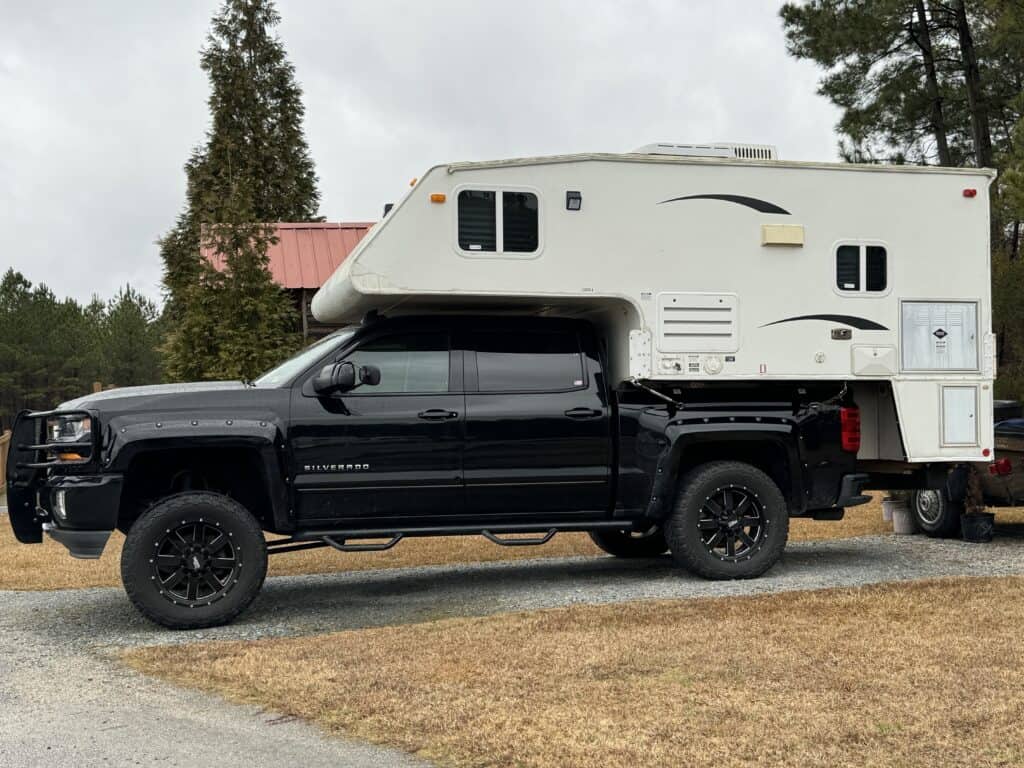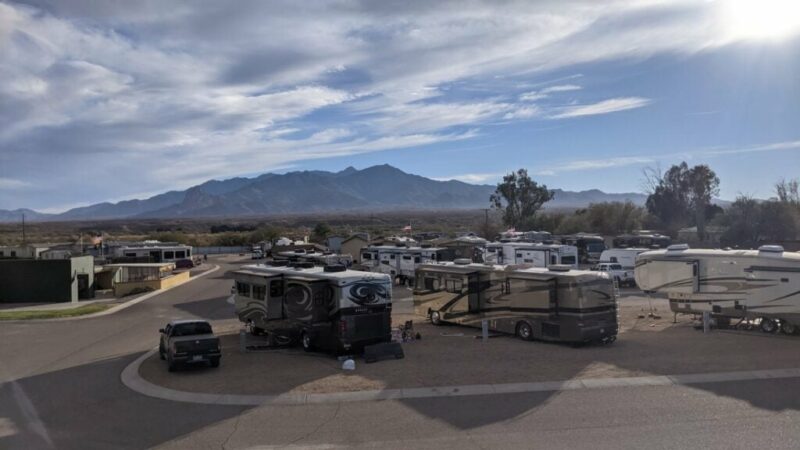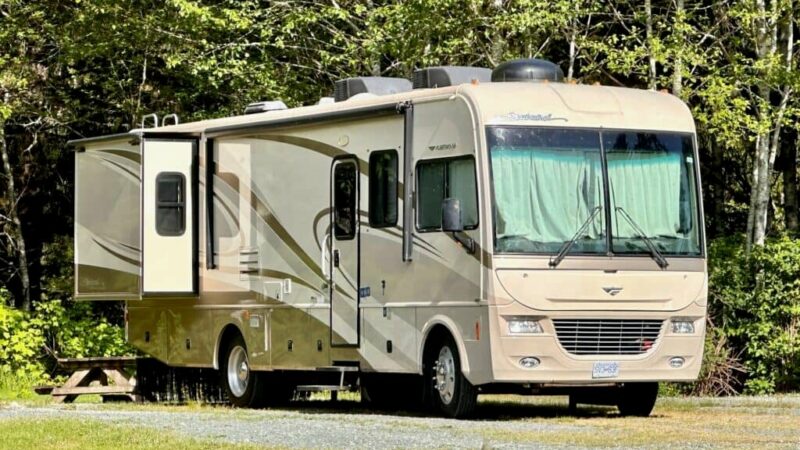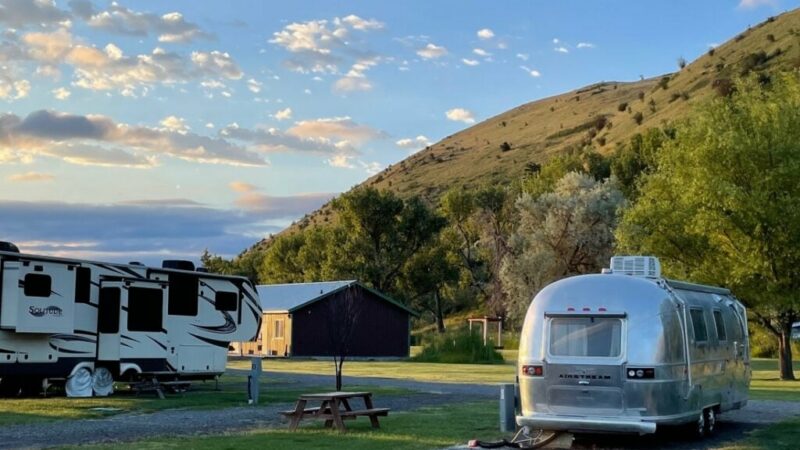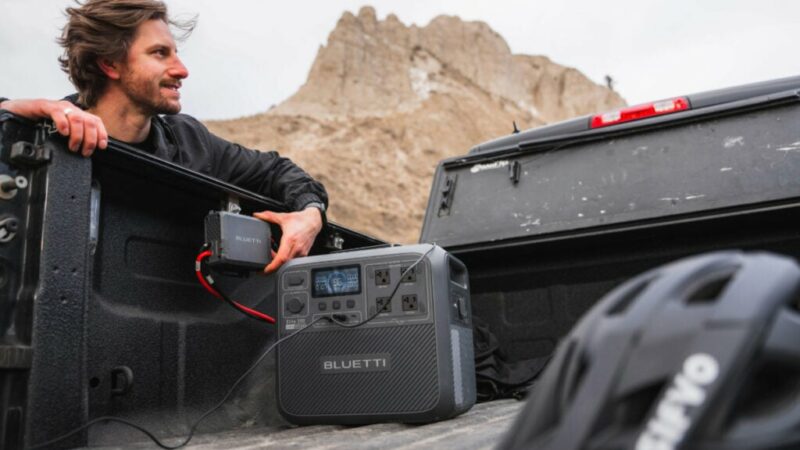Should You Use a Consignment Service to Sell Your RV?
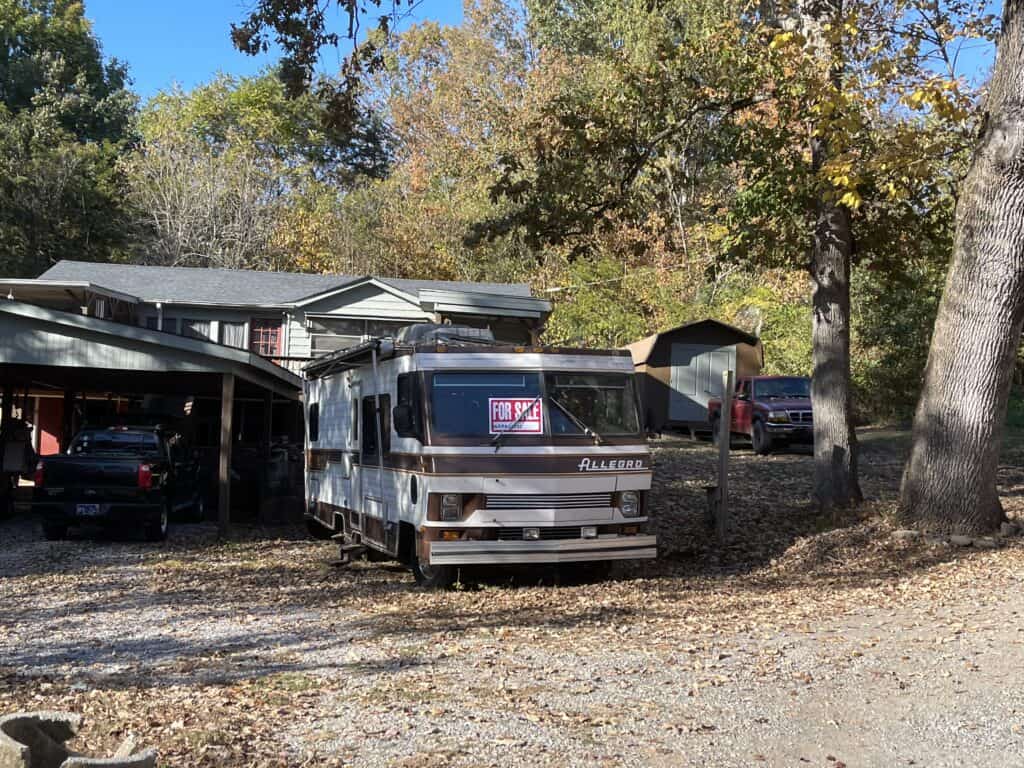
Procrastination Costs Money
If you’re like many RV owners, when it’s time to sell your RV you don’t know where to start. So, you procrastinate, make excuses, and defer for another season. You think, “Well, I guess I might as well just wait until next spring.” You probably slow-walked your way to that decision, which extended how long you’ve been sitting on a valuable asset. RV values depreciate over time and every passing day or season ends up costing you more money. We can offer you first-hand insight into various options for selling your RV (including RV consignment services). That way, you can move forward quickly and confidently.
Trade In Your RV
If you’re planning on replacing your RV with a bigger or more modern RV, the easiest thing is to use your current RV as a trade-in. Unfortunately, the trade-in option is not available to everyone, and trading in your RV will significantly lower your cash returns. The trade-in option may be the path of least resistance—but be aware it is the most costly option.
Conversely, the amount of cash you could get by selling your RV on the private marketplace could be as much as 40% more than what you’d get for it as a trade-in. Even more troubling is that many RV dealers limit the age, type, and condition of the RVs they will accept in trade. If you have an old RV or one that needs some TLC to get it back into service, many dealers won’t take it in trade.
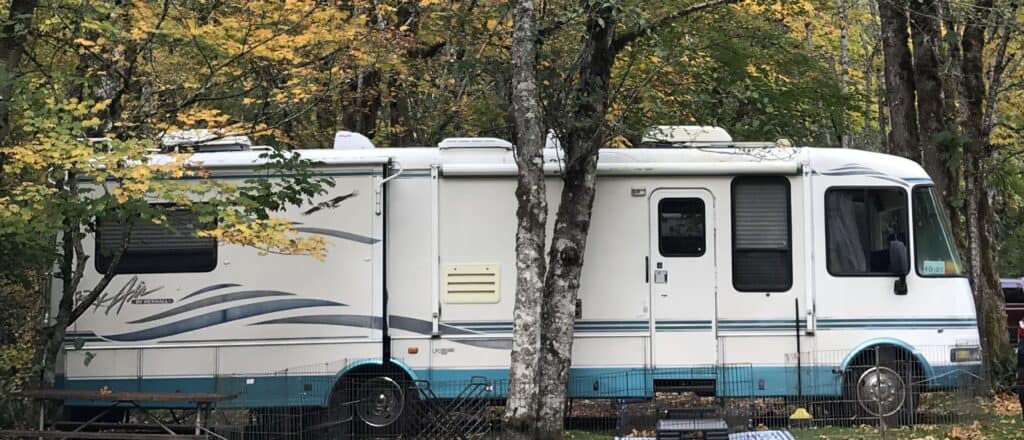
Personal Experience Selling
We have some personal experience in this area. After buying a new Class A motorhome from a dealer in Florida in 2019, we drove our 20-year-old Class A motorhome from Vancouver Island, British Columbia. We made the trip to Florida to pick up the new one. Even though all the systems worked well in the old rig, and it was visually in pretty good shape, the dealer didn’t want to commit space on their lot to a low-value motorhome with 120,000 miles on the odometer. The dealer arranged for us to meet with a Florida RV wholesaler, who bought our RV outright.
A better option would have been to use an RV consignor such as Blue Compass RV or Bish’s RV. It would not have been possible (for us) to sell it privately from that location. But we could have parked our old RV on a consignment lot and let the consignor handle all the buyer inquiries, test drives, and paperwork.
It might have taken a few weeks to sell, but consigning it would have produced considerably more return than selling it to a wholesaler. Unfortunately, at the time, we didn’t know anything about RV consignment services. Since then, we’ve done extensive research in all things related to selling an RV. And I’m happy to pass along this information so you can make better decisions than we did. Also, this information will let you act quickly so you’re not losing value by letting your RV languish away in a storage lot or out behind a barn.
Three Levels of Involvement, Three Different Returns
I think of consignment selling as the middle ground. As mentioned above you can use your RV as a trade-in on a newer RV or you can sell it privately. There are tradeoffs in each of these options. Using it as a trade-in is the easiest and quickest option. But it’s also going to result in the least amount of revenue.
Selling it privately will require more work, but you’ll get a much better price for your RV. To the tune of as much as 40% over the trade-in option and as much as 20% over consignment. And while we’re on the subject of selling it privately, there are good and bad ways to do that. Parking your RV in your driveway with a “For Sale” sign in the window is the wrong way. In fact, doing so will probably only result in frustration and disappointment. This is where far too many people get hung up when they start thinking about selling their RV. That’s why so many RVs end up as a massive pile of debris on someone’s back 40, entangled in blackberry vines.
The right way to sell an RV on the private market is to get some professional help. There is a company that only serves For-Sale-By-Owner RV sellers. For a small fee the folks at National Vehicle will help you every step of the way. National RV can even secure financing for the buyer and help with inspections and transportation. You can read more about selling on the private market here.
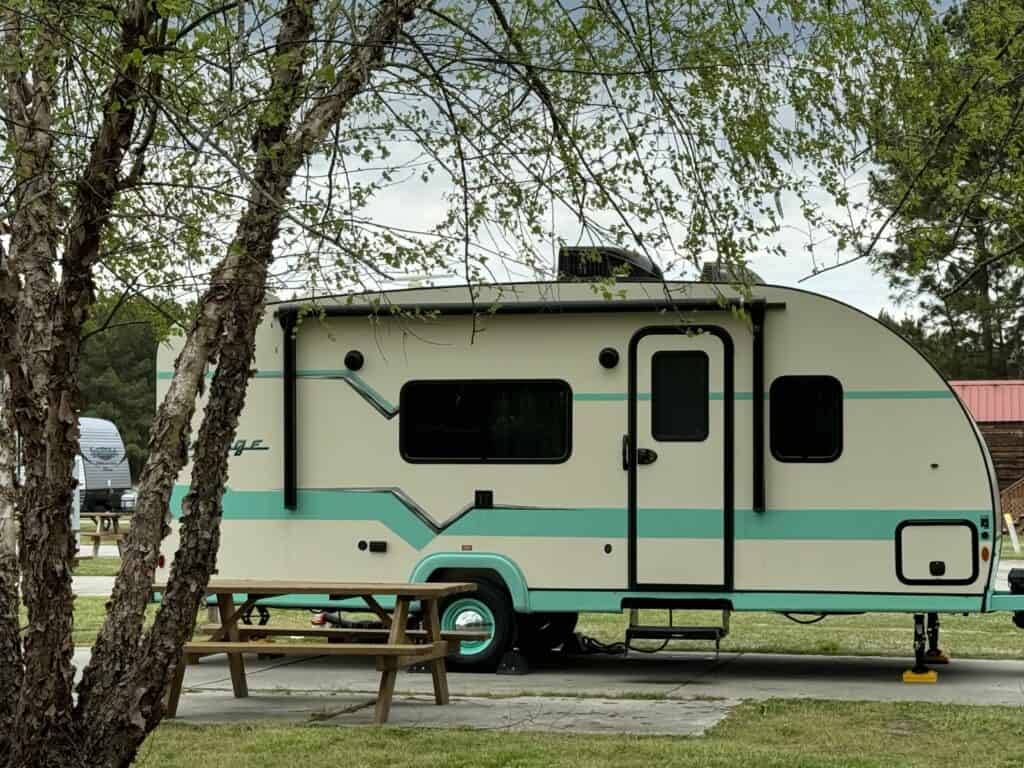
Consignment is the Middle Ground
But the third option for selling your RV is what I think of as the middle ground. It falls between selling your RV privately and using it as a trade-in. This middle ground is to use a consignor to sell your RV to a private party. This option will involve less work for you than selling it in the private marketplace and will result in more cash in your pocket than using your RV as a trade-in.
Using consignment services is a blend of a better price and less hassle, but be forewarned. Not all consignment options are created equal. The lowest end of this type of RV selling strategy is nothing more than an open lot on a busy street where you rent space. In this situation you pay a monthly fee for lot space but there are no services provided. A “For Sale” sign in the window of your RV provides the details about the RV and your contact info. It will be your responsibility to meet prospective buyers, show the RV, answer questions, negotiate the price, handle the paperwork, and complete the financial exchange.
This type of consignment option is only marginally better than parking an RV in your driveway with a For Sale sign. It may give the RV more visibility but there are no other services provided by the consignor.
Different Consignment Services and Fees
The alternative to paying rent for space in an unmanned consignment lot is to use a consignor that provides sales services. Those services could include cleaning and inspecting the RV and repairing detectable damage. They also may include showing the RV, negotiating the price, and handling the paperwork and financing for you.
Simply drop off your RV, sign a contract for how much you will be paid after it’s sold and then wait for your check. The consignor will inspect the RV and determine its value. Based on that free valuation and your price negotiation, you’ll be paid as soon as the sale is final.
Another type of consignment service expects you to do some of the leg work. In this case, you’ll need to clean and prepare your RV for sale and supply the consignor with pictures to be used in advertising. Nearly all consignors will create advertisements for your RV and place the ads in the popular RV publications where RVers typically search. But exactly where your RV will be advertised and for how long should be part of your negotiation.
Also, be aware that some consignors expect you to do some of the up-front work while others will manage the prep and photography as part of their service package. The level of service provided will impact the fees. But either way, once your RV is on the consignment lot the staff will answer buyer questions, respond to electronic inquiries, meet prospective buyers, show the RV, negotiate the price, and handle the paperwork and finances. You just need to pick up the check after the sale.
Find and Evaluate Local Consignors
By now you probably understand that there are significant differences between all the consignors in your area. They have their own policies, guidelines, and fees. Therefore, it behooves you to find as many local consignors as possible and compare their services and fees.
Most large dealer networks, like Blue Compass RV and Meyers RV Superstore, have consignment services available, and almost all of them can get you started by providing a free valuation of your RV. As a side note, National Vehicle also offers free valuations, so if that’s the direction you decide to go, you can start by obtaining that critical information or you can use the free valuation services to compare prices with different consignor’s valuations. Frankly, I trust National Vehicle’s valuation more than anyone else’s because the company charges a small flat fee for its services, not a percentage of the sales price. It is in National RV’s best interest to provide an unbiased assessment of your RV’s value.
Get Multiple Quotes
Additionally, once you have a list of consignors in your area try to obtain valuation from several of them. I strongly recommend getting more than one valuation. This will give you a better idea of what you can reasonably expect to get for your RV and it will help you avoid “hidden” fees. Some consignors provide a low valuation, then agree to pay you a portion of that price once the sale is complete. How much they will get when they sell it is unknown so basing your payment on a portion of a low value actually allows a greater profit margin for the consignor. If you don’t know what your RV is worth you’re opening the door to being under paid for your asset.
Unfortunately, consignors’ fees are not widely published (it may be a flat fee or a percentage of the selling price typically; 20–30%) so you’ll need to ask for and get their fees nailed down before you make your choice of where to consign your RV.
Know in Advance What Services Are Provided
You should also investigate exactly what services each consignor offers. Start with their advertising policy. This is very important because if it’s not widely advertised it will take much longer to sell. Also ask the consignor if it does safety inspections and if it repairs any damage to better position your RV for quick sale. Determine how many salespeople the company has on the lot daily, and if the staff is available during all hours of operation. What about security during off hours? If your RV is damaged or vandalized while it’s on the company’s lot, who is responsible for the damage? If you still owe a balance on your RV, find out how the company handles the payoff with your lender. Take your time and ask potential consignors insightful questions so you can determine who to trust with your RV sale.
Questions Will Reveal the Ins and Outs of Consignment
All these questions are important and will help you unravel the ins and outs of all your local consignment services. Once you investigate the various consignors you should be able to confidently decide which one to employ. It shouldn’t be too difficult to find local consignors. As stated earlier, most large RV dealers have these services available, like Blue Compass RV, which has dealerships in 33 states and offers more than 15,000 new and used RVs for sale. Other RV dealers that offer consignment services are Bish’s RV, Meyers RV Superstore and even Camping World. There are pros and cons for each consignment option, so do your due diligence and compare the options.
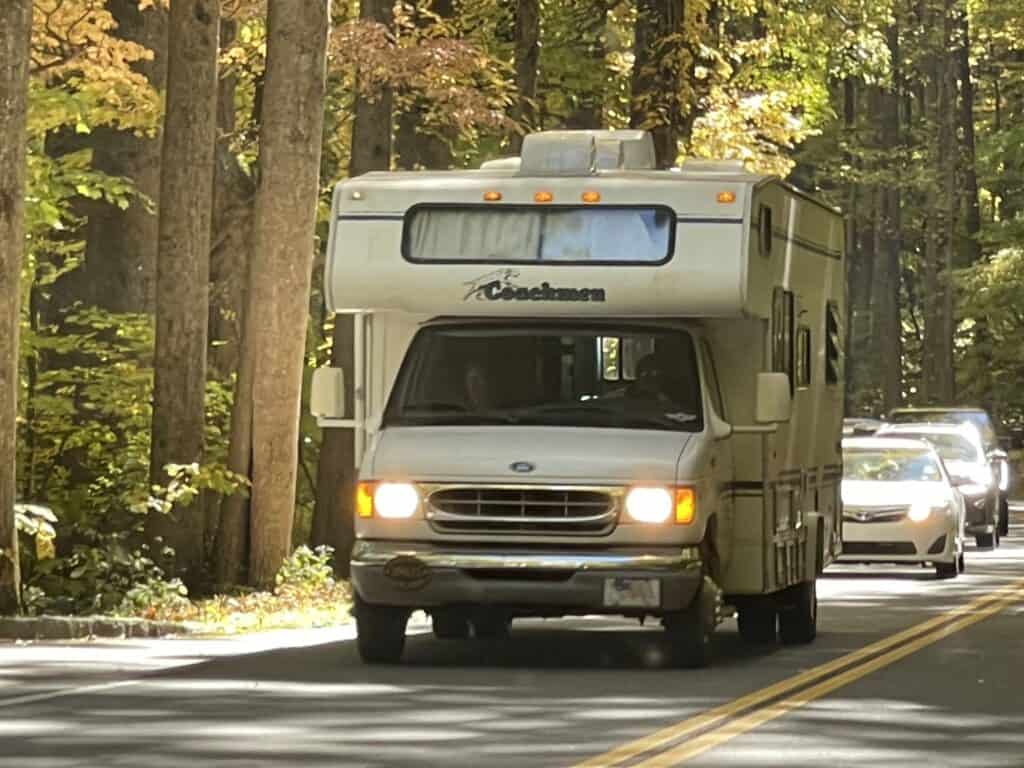
Different Ways to Sell Your RV
To recap, there are many ways to sell your RV. The most important decision, however, is to take a definitive step forward and get the process started as quickly as possible.
Method/Cost
- Private sale without help/ No fee
- Private sale with help/ Small one-time fee
- Trade-in at a dealership/ Fee built into the deal
- Consign with no help/ Small lot rental fee
- Consign with minimal help/ Variable; depends on consignor policy
- Consign with extensive help/ Variable; depends on consignor policy
Conclusion
Whether you decide to sell your old RV on your own, use it as a trade-in, get some professional help selling it in the For Sale By Owner Market, or place it with a capable consignment dealer, don’t wait. Don’t procrastinate like so many people who let their valuable asset turn into a pile of rubbish because they didn’t know what to do.
Now you know. Take the first bold step forward toward selling your RV.
The post Should You Use a Consignment Service to Sell Your RV? appeared first on RV LIFE.
Source: https://rvlife.com/should-you-use-a-consignment-service-to-sell-your-rv/

